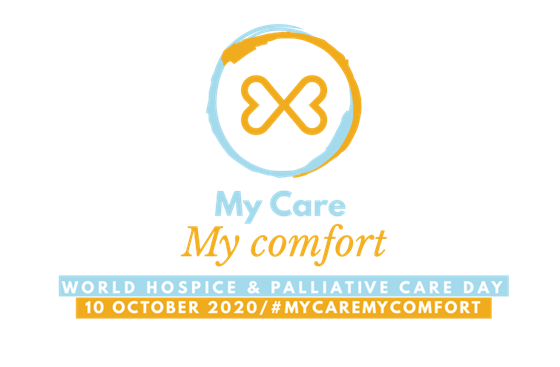Senior Lecturer in Palliative Care at De Montfort University Leicester (DMU), Amanda Whateley has given insight into her life as Palliative Care Nurse ahead of World Hospice and Palliative Care Day on Saturday 10 October 2020.
“Palliative care is not just about death. It is helping people to live while they are dying and getting the most out of life.”
Having served as a palliative care nurse for more than 30 years, Amanda Whateley would know.

“It can be difficult watching families having to come to terms with sometimes a very unexpected diagnosis,” she said. “But I think it’s a real humbling experience to empower people with the tools to manage their lives, whether it’s for days, weeks months or years.
“I think working in palliative care is an absolute privilege.”
It is this belief in the importance of palliative work, grown through decades of experience, which makes Amanda such an advocate of hospice care.
After joining DMU last year, Amanda made it her objective to arm students with her frontline skills and the knowledge of, and ability to talk openly about, palliative and end of life care.
Having trained originally as an adult nurse before moving on to train as a children’s nurse, she became Ward Sister of an Oncology ward at Great Ormond Street Hospital. Amanda found working alongside the palliative care team, patients and their families was where her heart lay.
And her journey in hospice and palliative care began.
Amanda said: “I had a job for seven years in the community working with adults and children with life limiting conditions, I just kept going and one thing led to another.
“I got my first job in a hospice about 10 years ago, working and setting up a hospice for babies. I went from there, as Head of Care, to another hospice where I was a Director of Care for six years working with children and young people.
“For most of my career I have had a real interest in working with people with life limiting conditions and I really want to make life better for them in the later stages of their conditions. I always want to make sure they are given choices about their care and where they are cared for, working closely with patients and their families.
“Death and dying can be frightening, and as much as we try to prepare patients and families for it, when it comes to it, patients may change their minds which is OK.
"I would like to see more options available for patients regarding where they would like to die,” she continued.
Amanda said working with families as well as patients is a huge part of palliative care.
She said: “The thing about palliative care is working with the families, not just the individual, its looking after the needs of the patient and the whole family.
“I am a real advocate of hospices and the approach to care of those with life limiting conditions, improving their quality of life, and making sure any problems associated with these conditions are managed.
“Palliative care is not just looking after physical symptoms, it is also the psychological, spiritual emotional side too. Hospices provide such a valuable service to people with palliative care needs, and their families.”

Amanda also explained the importance of communication and the stigma sometimes still attached to hospices, palliative care and end of life.
She said: “Communication is a huge part of the role not only in terms of nursing and communicating with patients and their families, but also raising awareness to the public.
“So many people do not understand the work hospices do and how they are funded, which is mainly through charitable fundraising.
“Unfortunately a lot of people still don’t get the opportunity to use the services of a hospice because they are not aware of it, or they are fearful of it or what it might mean and they think being sent to a hospice means they are going to die imminently. This isn’t necessarily true. People access the support of hospice services often alongside treatment and often for many years.”
Amanda continued: “The pandemic, unfortunately, has changed the way we are able to provide compassionate care and we have had to find ways to make it work for patients. Having volunteered as a nurse during the pandemic at (Leicester Hospice Charity) LOROS, I have seen this firsthand.
“I think working in palliative care is an absolute privilege, we are not necessarily helping people to get better or cure them, but we are helping them to live with their condition, to manage any symptoms associated with their condition and to plan their end of life care, along with their loved ones.”
She added: “The work of hospices and palliative care needs to be promoted and that’s really why I have now moved into education, hopefully to get to a point where people can enter their nursing career not being fearful of having conversations about death and dying; and understanding the importance of palliative care and its care services.
“World Hospice and Palliative Care Day is a unified day of action to support hospice and palliative care around the world. It is hoped that by raising the profile and people’s awareness of hospice and palliative care, those impacted by a life limiting illness will continue to receive high quality and well-funded care and support.
“I would like to see palliative care given the funding and resources that it needs with every professional really educated in palliative care, especially end of life care.”
Posted on Friday 9 October 2020